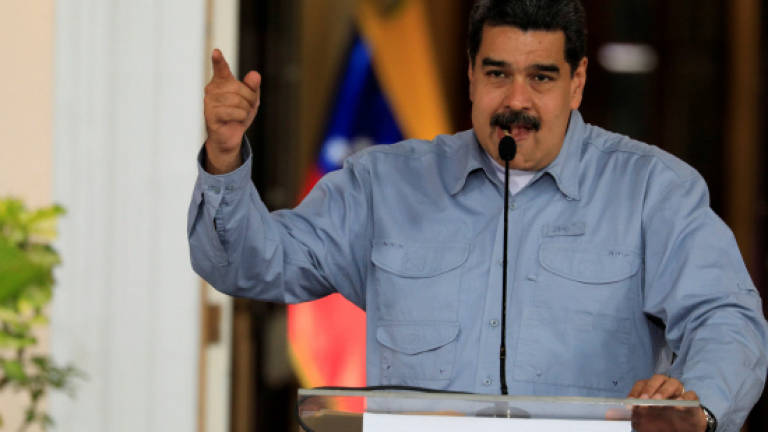Economic crisis forces slowdown at Venezuela universities

CARACAS: Teachers unable to pay the bus fare to get to class, students stuck in long supermarket lines in the quest for affordable food: Venezuela's academics say the deep economic crisis is paralyzing the country's universities.
Venezuela's universities have long ranked as among Latin America's best. But the acute economic and political crisis has forced students to drop out in droves, and teachers are following them out of the country.
Last month, the University of Zulia (LUZ) in the northwestern city of Maracaibo cut courses to three days a week to try to ease the problems that students, professors and employees are facing just to turn up each day.
"We are working every day, but we are organizing ourselves so that every teacher, student or employee comes about three times a week," said Judith Aular, the LUZ's rector. Lectures and study material are given out over the internet the rest of the time.
It's an attempt to curb Venezuela's growing brain-drain, as teachers and students seek to leave the crisis-torn country, said Aular.
"We allow teachers to look for another source of income. With what they earn, they can't support their families."
Universities across the oil-rich Latin American country are facing the same problem.
Since 2016, when the crisis sparked by the fall in the price of oil began to deepen, 25% of teaching staff, and 40% of the students at Oriente University in the eastern city of Cumana have packed their bags and emigrated, according to the university's director Milena Bravo.
The country's most experienced professors, working full time, earn 3.9 million bolivars a month, equivalent to US$10 (RM 38.90) on the black market — only enough at current rates to buy five kilos of meat.
Danilo Fuenmayor, fresh from completing his economics studies at LUZ, said he was relieved that he only had to turn up for lectures three days a week during his last month. "I had to walk three kilometres because I didn't have cash for the bus," he said.
"Fifteen professors have left my faculty, and my tutor's car has broken down and she can't have it repaired. Transportation doesn't work," the 23-year-old told AFP.
Budget devoured
Venezuelans struggle with cash shortages because the government can't print new bills fast enough to keep pace with the world's highest rate of inflation, estimated to reach a staggering 13,000% this year by the International Monetary Fund (IMF).
President Nicolas Maduro, whose government is widely blamed for mismanaging the economy after oil prices plummeted, said new bills will be issued in June that lop three zeroes off current values in a bid to ease pressure on the public.
The crisis is also causing shortages of food, medicine and essential products like auto-parts, the lack of which has left 80% of the bus fleet paralyzed, according to the public transport union.
Caracas engineering student Daniela Garcia said she often misses classes because she has to join her mother to queue for hours to buy essential foodstuffs in the supermarket.
Teachers, too, are struggling, said Amalio Belmonte, head of the Central University of Venezuela (UCV).
"For a teacher, getting around can be an Odyssey, because he cannot get his car repaired or he spends all his income on food."
Surging campus violence
UCV, which is nearly 300 years old and has 43,000 students, also plans to reduce classes to three days a week, according to Belmonte. His main problem is a huge budget shortfall after UCV received only one-third of what he requested for the academic year.
"Most of it goes on wages. Money for research is about enough to buy five tires," he said.
Belmonte said he signs some 3,000 certificates every week for graduates who are leaving the country, as opposed to around 100 a week on average in previous years.
Violence on campus is surging, a reflection of the country's rising lawlessness. At UCV, no employees are visible by late afternoon for fear of being attacked.
"People run away before nightfall. There is no lighting and they can be mugged," said Professor Gabriela Rojas.
Added to this is a lack of gasoline and in some states, electricity rationing.
Danilo Fuenmayor said he has had enough and is thinking of only one thing, emigration.
"I have been robbed several times at the university. I earn the minimum wage and that's just enough to buy a kilo of cheese. — AFP